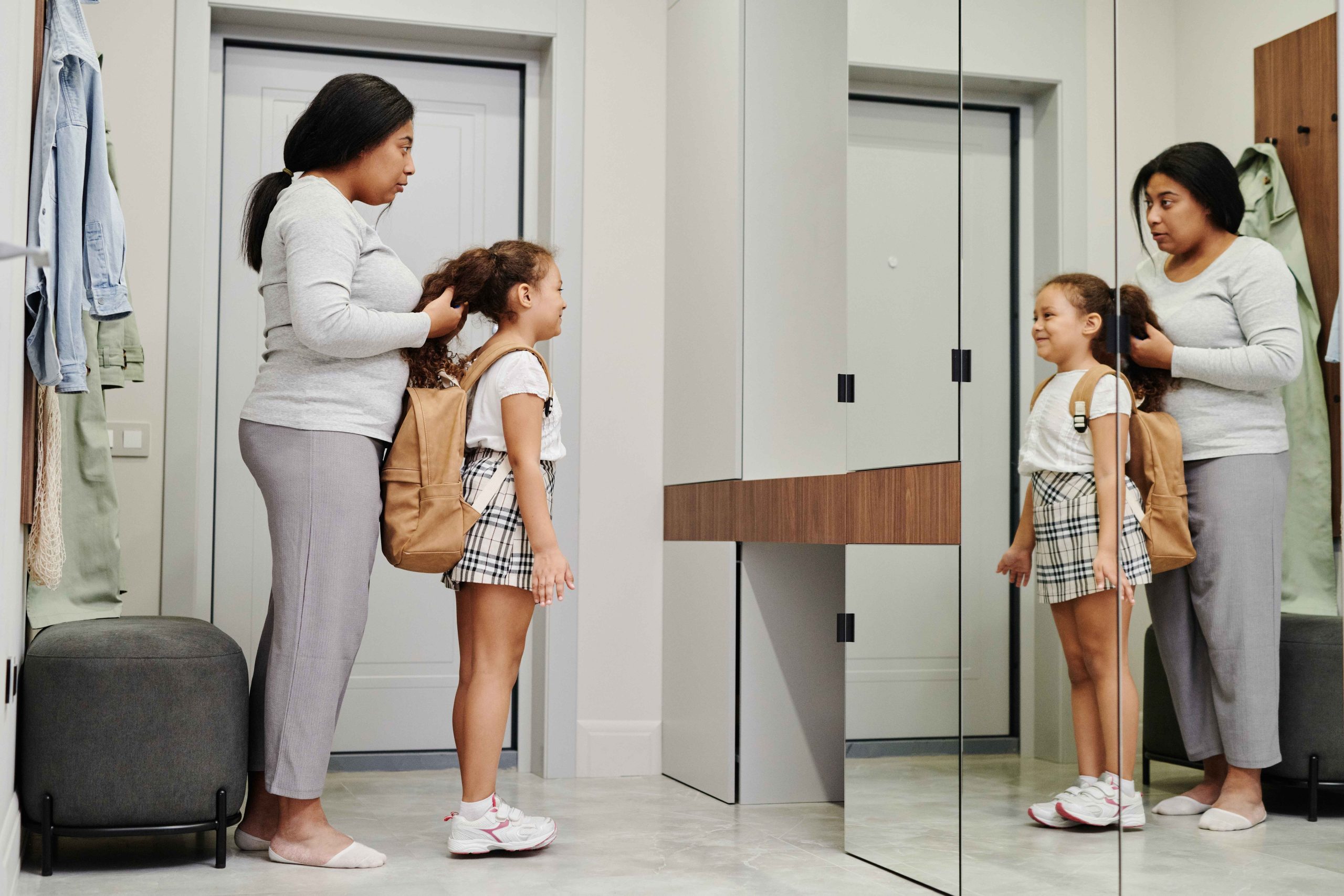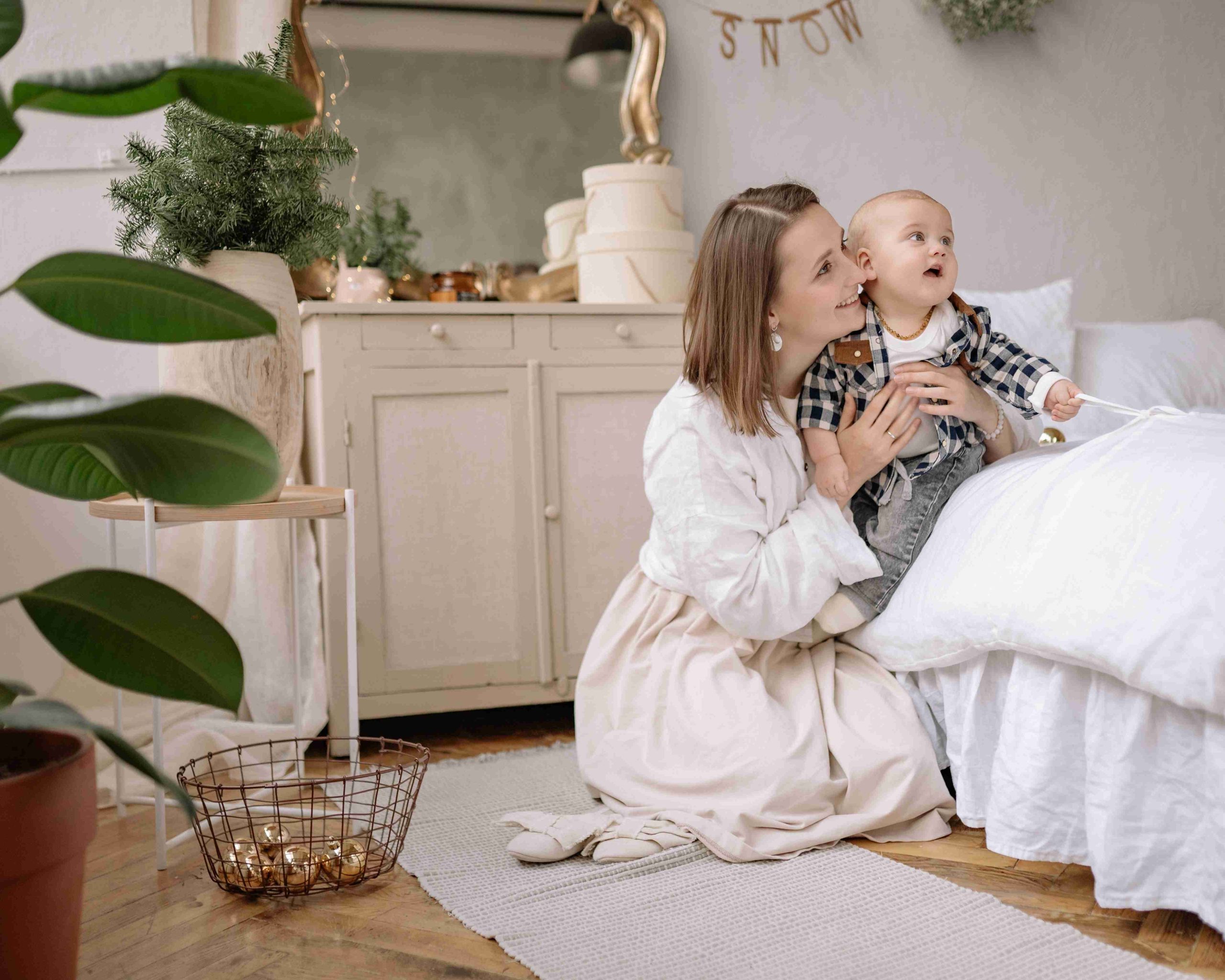
Are you getting ready to send your child off to preschool? It’s a big step for both you and your little one, but it doesn’t have to be daunting! With the proper preparations, you can help make the transition smooth and stress-free. This blog post will share our top tips for getting your child ready for preschool.
Take Turns Being the Parent, Child, and Teacher
It is essential to teach your child how to take turns and be respectful of others. One way to do this is to role-play with your child by taking turns being the parent, child, and teacher. This will help them become more familiar with the preschool environment and help them understand the importance of following rules. Additionally, it can help to play simple turn-taking games, such as rolling a toy back and forth. This will help your child learn how to wait their turn, share with others, and respect other people’s boundaries. Additionally, acting out common daily routines, such as saying goodbye to mommy or daddy or taking off their shoes, will help them become more familiar with the expected behaviours in the preschool setting.
Act Out Common Daily Routines
After taking turns acting as the parent, child and teacher, it’s important to act out common daily routines. This will help your child become familiar with what a regular school day looks like. Pretend play is a great way to get your child comfortable with the idea of preschool and being away from home. You can act out story time, singing songs and nap time. Making up stories to explain what will happen during the day can also be a great way to help them understand the routine and make them feel more comfortable. Additionally, putting up an illustrated poster of your routine where everyone can see it can help your child visualize the different activities and make them more aware of what is expected throughout the day.
Make New Friends
In addition to preparing your child for preschool by taking turns being the parent, child, and teacher, acting out everyday routines, and developing a comfortable bedtime routine, it is also vital to help your child make new friends. Encourage your child to practice saying hello and introductions. Ask your child questions about the other kids in the class and get involved in their conversations. Show your child warmth and respect, and don’t try to control them through threats or punishments. Talk about different types of friendship, and if your child is having difficulty making friends, try observing what happens when they interact with other kids. By providing positive reinforcement, you can help create an environment that is conducive to making new friendships.
Develop a Comfortable Bedtime Routine
Creating a comfortable sleep environment is essential for your child’s transition into preschool. Start dimming the lights around the house when it is time to begin your bedtime routine. A regular bedtime routine starting around the same time each night encourages good sleep patterns. This can include a bath, story and nutritious snack or bottle/breastfeeding, and should have a consistent start and end time. By providing your child with a consistent bedtime routine, they will be better able to adjust to the changes that come with attending school.
Talk About the Classroom Routine
Once your child has adjusted to the home routine, it is important to talk about the classroom routine. Explain to them what happens during the day, such as when they will have circle time, snack time, and playtime. Going over the schedule a few times before starting preschool can help your child become familiar with what to expect. Also, take some time to talk about who will be in their class and how they can make new friends. The more prepared your child is for the classroom routine, the easier it will be for them to transition into preschool life.
Practice Washing Their Hands
Practising proper hand washing is an essential skill for children to learn before preschool. After discussing the importance of washing their hands and going through the five easy steps—wet, lather, scrub, rinse and dry—it’s time to put those skills into practice. Make hand washing fun by providing a shallow plate of soapy water and a few drops of pepper. Let your child dip their finger in the soapy water and swirl it around. The pepper will disappear underneath the soap, making it appear as if the pepper has magically disappeared! It can be a great way to teach them proper hand-washing techniques while also demonstrating that it’s an enjoyable activity. Once they’ve mastered the basics of hand washing, be sure to remind them of the key times when they should wash their hands, after using the bathroom or before eating.
Develop Oral Language Skills
Parents can help their children develop their oral language skills by modeling language, engaging in conversations, and providing positive reinforcement. Reading aloud, storytelling, and playing games together can be great ways to practice these skills. Additionally, children can practice their oral language within meaningful contexts such as during playtime or when asking questions. Parents can also encourage their children to practice taking turns talking and listening to each other when consulting with one another. By taking the time to talk with your child, ask questions, and provide praise and support, you are helping them to develop essential communication skills that will benefit them in preschool and beyond.
Engage Your Child in Conversation
Engaging in conversation with your child is vital in preparing them for preschool. Having meaningful discussions will help them develop oral language skills, take turns speaking, and build confidence when communicating with others. Open-ended questions, commenting on what the child is saying, making eye contact, and using body language and gestures can all help to create a rich language environment. Additionally, practising common daily routines such as washing their hands can help to prepare your child for the routine they will experience at preschool. Taking turns being the parent, child, and teacher during these activities can also be a fun way to engage your child in conversation.
Provide Positive Reinforcement
It’s important to remember that positive reinforcement is key when it comes to preparing your child for preschool. Verbal praise, rewards, and encouragement will go a long way to help your child feel comfortable and confident in their new environment. Taking time each day to point out your child’s successes and accomplishments can also be highly beneficial. It helps to build their self-esteem and foster feelings of trust. Additionally, it allows you to tap into your child’s individual strengths, draw attention to their personality traits and interests, and make them feel loved. Positive reinforcement is an effective way of reinforcing positive behavior, so make sure you use it often!
Make Sure to Have Fun!
It’s important to remember that as you prepare your child for preschool, you should also keep things fun and light. Encourage pretend play and open-ended activities that allow your child to explore and learn. Please get involved and be creative together, whether building towers with blocks or painting a work of art. Take time to laugh and enjoy the moment together, as these memories will last.
Conclusion
Preparing your child for preschool is an important step in their educational journey. It is important to make time to teach your child the necessary skills and routines they need to feel comfortable and confident in the classroom. It would help if you started by talking about the classroom routine, practising washing hands, and engaging your child in conversation. Taking turns being the parent, child, and teacher is also important to help your child learn how to make choices for themselves. Finally, don’t forget to make sure to have fun with your child throughout this process! Your child can have a positive and successful preschool experience with the proper preparation.




